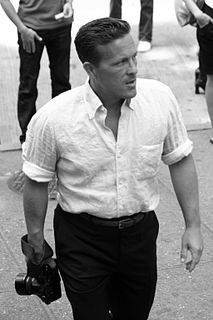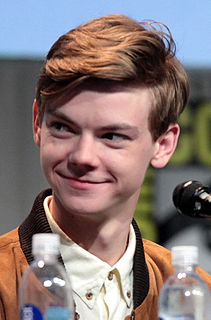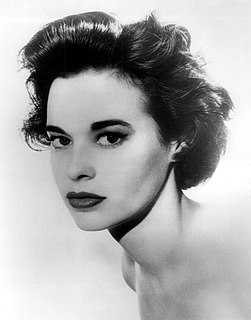A Quote by Grace Coddington
People stopping you in the street, though, is very different from being hounded by the press, which is the kind of attention that celebrities get, and I'm probably too old for that kind of thing to happen anyway. I think it happens more when you're dating all sorts of different very handsome actors or something. They want gossip and scandal, and they know they're not going to get it from me because I'm too old to be scandalous. Of course, they could read the book - although it's not really a scandalous book.
Related Quotes
If my novel gets any attention in Bulgaria, it will be as a scandal: a book about a teacher at a famous school and his relationship with a prostitute. I doubt very much it will be evaluated on its merits as literature. If Bulgarian were the book's only language, that would be painful and limiting to me as a writer. Since my book also exists in English - where it isn't scandalous at all - I feel comfortable with the possibility of scandal.
I doubt if I shall ever have time to read the book again -- there are too many new ones coming out all the time which I want to read. Yet an old book has something for me which no new book can ever have -- for at every reading the memories and atmosphere of other readings come back and I am reading old years as well as an old book.
I think that ‘New Moon’ was my favorite book as well mainly because I like the juxtaposition of all sudden people being…it’s such a hyped character, Edward, and there are so many people looking at him like a romantic hero. In ‘New Moon’, the way that I read it anyway, he’s just so humbled. It’s a character who’s looking at Bella and thinking that he loves something too much but he can’t be around. He deliberately starts breaking up their relationship which I think is a very relatable thing and I think is very kind of painful.
A writer writes a book. People read it. You don't know what they're reading, really. You read a review and think, "That is so inaccurate. You can't have been reading my book with any kind of attention, because that is all wrong, that's even the wrong name you're including there." But these reviewers have been diminished in importance, the work is so little respected. If you're reviewed by a real critic, by James Wood or Louis Menand, then you get something that is informed, interesting, and highly articulate. But the average review doesn't have that kind of depth anymore.
I think I write or publish as much as I do because I can bear being without a book to work on. But routinely when I finish a book, I think, "What will I do? Where will I get an idea?" And a kind of low-level panic sets in. And then eventually something happens. I don't know. If I knew how it happened I would repeat the process, but I don't know - something just occurs to me.
I have rarely read anything which has interested me more, though I have not read as yet more than a quarter of the book proper. From quotations which I had seen, I had a high notion of Aristotle's merits, but I had not the most remote notion what a wonderful man he was. Linnaeus and Cuvier have been my two gods, though in very different ways, but they were mere schoolboys to old Aristotle.
I would change very little because I have been very, very fortunate. A lot of things fell into place for me simply by happenstance. When that happens you don't really want to change anything, even if you could. Editorially my regrets are few and for the most part minor. I look back on my first published book and think I held on to it too long, babied it too long.
Everybody's version of style is totally different and that's what I think keeps me going out on the street everyday is going out and kind of seeing the variations and what things maybe I'd never seen quite that way that I find very curious and how people will be able to communicate their own persona through their clothing, their posture, the way they wear their hair. I think all those elements end up becoming very interesting because I don't think I'm really particularly a people person. So for me I think it's interesting to kind of be able to read people in that way.
Film team kept me very, very shielded when I was that young, because of course, I was seven years old. You know, you're still kind of reading. It's still kind of like, "Cat." "Dog." "Ann jumped over fence." So I guess in a way it helped me progress in school, too, because I was reading so much and memorizing so much. But they kept me very shielded from everything that was going on in the The Amityville Horror. I didn't know anything, basically, about the film. I just knew that it was a scary film. I wasn't allowed to watch it. I can watch it now, I'm just too scared.
Once I'd worked out that I couldn't possibly expect people to enjoy a monstrous, 3000-page book, I realised I could in fact create a labyrinth of a story with four different points of entry. But what interested me was creating something that would rearrange itself every time you read one of the other books. So depending on which order you read them, the implications and angles would change. To get that right, each one of the books had to have its own personality and texture -- even though they are connected, they are very different creatures.
It's not possible to advise a young writer because every young writer is so different. You might say, "Read," but a writer can read too much and be paralyzed. Or, "Don't read, don't think, just write," and the result could be a mountain of drivel. If you're going to be a writer you'll probably take a lot of wrong turns and then one day just end up writing something you have to write, then getting it better and better just because you want it to be better, and even when you get old and think, "There must be something else people do," you won't be able to quit.
Heidegger wrote a book called Was Ist Das Ding - What Is a Thing? which was kind of interesting and influential to me, as a matter of fact. It's a small paperback, which I read. It's about the nature of thingness; what is it? It's a very penetrating analysis of that, and I think a rather influential book. I know other artists who have read it and come up with it.
A text makes the word more specific. It really kind of defines it within the context in which it is being used. If it is just taken out of a context and presented as a sort of object, which is what - you know, which is a contemporary art idea, you know. It is like an old surrealist idea or an old cubist idea to take something out of context and put it in a completely different context. And it sort of gives it a different meaning and creates another world, another kind of world in which we enter.









































